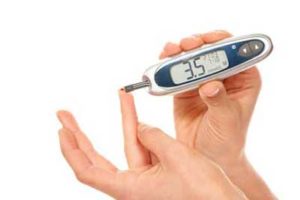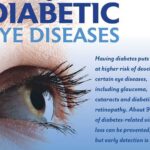Diabetes mellitus (DM) is a chronic disorder and requires lifelong management. Lifestyle modifications is the key to success of any diabetes management programme which includes regular exercise and healthy diet.
Diabetes mellitus (DM), commonly referred to as diabetes, is a group of metabolic disorders in which there are high blood sugar levels over a prolonged period. Symptoms of high blood sugar include frequent urination, increased thirst, and increased hunger. It is a chronic disorder and requires lifelong management. Lifestyle modifications is the key to success of any diabetes management programme which includes regular exercise and healthy diet.
Exercise:
Exercise plays an important role in diabetes management. Exercise recommendations are tailor made and need to be individualized. A regular exercise program can delay the onset of diabetes, help in control of diabetes, prevent diabetic complications and slow the progression of complications.
Unfortunately, many patients with diabetes find that they are unable to exercise, in spite of their best intentions. This might be due to lack of space and time or for want of adequate facilities. However, most people find it difficult to exercise for want of proper guidance as to what exercise to do. Also, many diabetic patients have other complications, which may prevent them from doing all the types of exercise that a non-diabetic individual can do. Compared to antidiabetic medication, exercise has the advantage that it is inexpensive and free of side effects. It also has beneficial effects which range far beyond blood sugar control.
- It lowers blood pressure.
- It helps to correct abnormal blood lipids by raising the good(HDL) cholesterol level.
- It helps in reducing body weight.
- It strengthens the heart and circulatory system.
- It can decrease body fat and increase muscle tone.
- It relieves tension, stress and helps the patient to feel relaxed.
- It increases basal metabolic rate and helps in weight loss
- It improves sleep and the general sense of well-being
Most importantly for a diabetic individual, exercise helps to improve insulin sensitivity. This means that a patient with type 2 diabetes can get good control of blood sugar on a smaller dose of diabetes tablets or insulin if he or she exercises regularly. Like any other treatment modality, exercise also has to be tailored to the individual; what works for your neighbor need not work, or necessarily be good, for you!
Diet:
Dietary management is nothing but knowing what, how much and when to eat in order to keep stable blood glucose levels. Food contains carbohydrate, fats and proteins as source of energy, and many other important ingredients like vitamins and minerals. Each of these has different effects on blood glucose. Hence while planning a healthy diet for diabetes we have to additionally look for calorie content, check if the diet provides optimal and balanced nutrition with sufficient fibre and glycemic index.
Calorie:
Calories are the energy derived from the food with help of insulin. The per day intake of calorie/ calorie requirement depends on type of activity profile (sedentary, moderate, and heavy), age, gender, and nutritional & physiological status of the individual and it is calculated based on the patients Ideal Body Weight (IBW). The ideal body weight (IBW) is calculated by the formula:
IBW = (height in cms -100) X 0.9
The daily calorie intake will be decided and planned by your doctor and dietitian. But it is always necessary to monitor the calorie intake.
Refined Carbohydrates vs. Complex Carbohydrates:
Sugary foods (sugar, sweets, jelly jam etc), refined or processed carbohydrates (white rawa, maida etc) raises the blood glucose rapidly whereas the complex carbohydrates present in vegetables and whole grains increases the blood glucose slowly. Refined foods have a high glycemic index – they cause a sudden and sharp increase in blood sugar. If the body does not use this blood sugar, it is stored as fat. Whole grains, vegetables, and fruits have a lower glycemic index. Naturally occurring carbohydrates (like those found in whole grains, vegetables, and fruits) provide vitamins, minerals, and fiber. In addition, they usually contain fewer calories than foods with added sugar.
Fibre:
Dietary fiber is a source of carbohydrate. Fiber is found in plant-based food like fruit, vegetables, legumes, peas, brown rice, whole-grain breads and cereals. Fiber is not digested or absorbed like other starches, and so has less of an effect on increasing blood sugars, reduces cholesterol, triglycerides and lowers LDL cholesterol The recommendation is to eat 20-35 grams of fiber a day.
Protein:
Protein plays an important role in our body. It accounts for one-fifth of our total body weight. The role of protein includes –
- Builds teeth, muscles, bones, skin and blood.
- Helps with growth and helps repair our body
- Regulates body processes.
- Carries nutrients and oxygen throughout the body
- Fights disease by increasing antibodies and strengthening the immune system.
- Provides a source of energy.
The recommended protein choices are for non-vegetarians are egg white, fish, and lean chicken in moderation. High protein intake from animal sources should preferably be avoided . Vegetarians can include soya, pulses, whole grams (channa, rajmha, green gram, etc.), low fat milk, and dairy products.
Fats:
The role of fat is to
- provide energy and essential fatty acids
- Serves as a source of fat-soluble vitamins (e.g., vitamins A, D, E, and K)
- Improves texture and palatability of food.


Glycemic index:
The Glycemic Index (GI) measures the speed at which food gets digested and converted to glucose. Carbohydrate foods which break down quickly during digestion have the highest GI and foods which break down slowly have the lowest GI . The grading of glycemic index are:
- High >70,
- Medium 56-69
- Low <55
Therefore, healthy diet and regular physical activity can bring about a reduction in HbA1c to the tune of 0.5 to 0.2%, which is equivalent to the effect of the most potent oral antidiabetic agents in the market today.


Dr. V. Mohan
Chairman and Chief of Diabetology
Dr. Mohan’s Diabetes Specialities Centre












